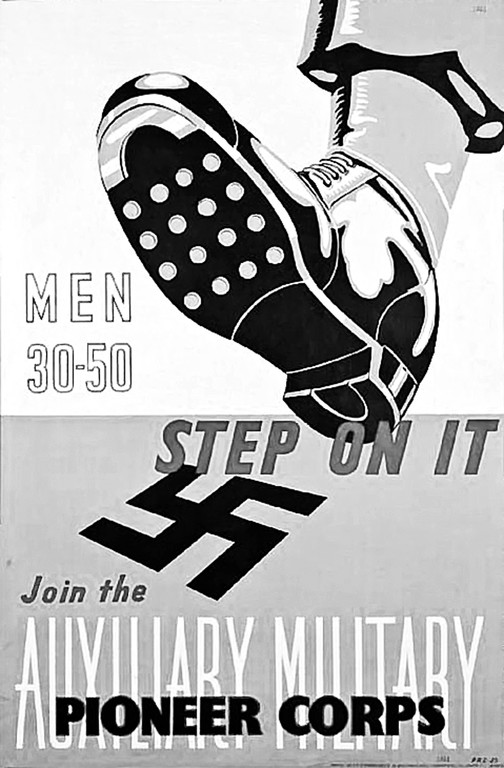Prisoners of memory: WWII aid from pre-state Israel
Ben-Zion Solomin, age 101, wears the cap of a British soldier and is assisted by his son and caregiver as he slowly approaches the front of the stage to light a Chanukah candle and welcome the crowd at the Armored Corps Memorial at Latrun, near Jerusalem.
The ceremony was held to honor the families of the prisoners of war from the Auxiliary Military Pioneer Corps (AMPC), who were captured by the Nazis during World War II and later freed by the Allied forces. In a cracked voice, with his son helping him, Solomin read his prepared re-marks.
“In honor of the endurance, the survival, the Zionist flame, and the devotion to the security services,” he said of the candle he would light.
The marks Solomin proudly bears on his chest tell an impressive story of combat and survival, one almost erased from collective memory: the story of the 3,200 volunteers from pre-state Israel who joined the pioneer corps in mid-1940, leaving their families behind to serve in His Majesty’s Armed Forces. Close to 400 of them were Arabs, and together they made up one-tenth of all the men and women from pre-state Israel who volunteered with the British army during the war.
Most AMPC members saw their first action in the western desert on the Egyptian-Libyan border. Their objective was to fend off the Italian army. The British then redeployed them to meet the German threat, which was how some of them reached the Balkans and Greece.
The seminal event that changed the lives of many of these volunteers took place on April 29, 1941. On the beach at Kalamata in the south of the Peloponnese peninsula in southern Greece, more than 1,500 AMPC members and 12,000 British soldiers were captured by the Germans. The British gave the order to surrender only after it became clear that there would be no possibility of a rescue.
The POWs were held in German captivity for four years. Many were transferred to work camps, 200 were killed during the war, some suffered from various forms of torture, and those who survived were left emotionally scarred.

 43.0°,
Partly Cloudy
43.0°,
Partly Cloudy 




